10 Best Herbal Decoctions For Fatigue
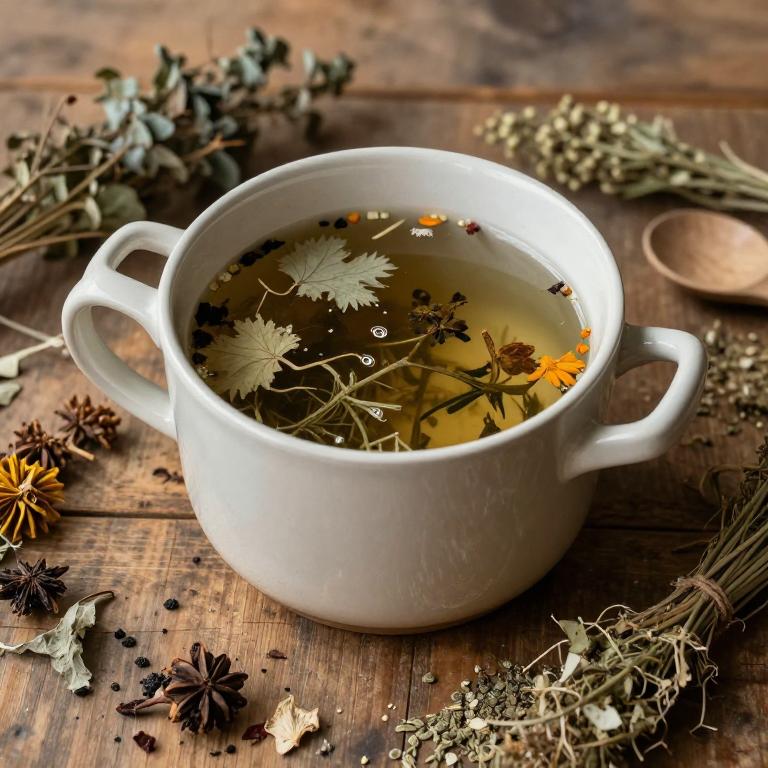
Herbal decoctions have been traditionally used to combat fatigue by harnessing the natural properties of various plants.
These decoctions typically involve simmering herbs such as ginseng, ashwagandha, and licorice root in water to extract their active compounds. The resulting infusion is believed to support energy levels, enhance mental clarity, and improve overall vitality. Many cultures have long relied on these remedies for their holistic approach to wellness.
While herbal decoctions can be beneficial, it is important to consult with a healthcare professional to ensure safety and appropriate use, especially for individuals with existing health conditions or those taking medications.
Table of Contents
- 1. Panax ginseng (Panax ginseng)
- 2. Ashwagandha (Withania somnifera)
- 3. Golden root (Rhodiola rosea)
- 4. Ginkgo (Ginkgo biloba)
- 5. Chaste tree (Vitex agnus-castus)
- 6. Heartworts (Leonurus cardiaca)
- 7. Echinacea (Echinacea purpurea)
- 8. Red sage (Salvia miltiorrhiza)
- 9. St. john's wort (Hypericum perforatum)
- 10. Turmeric (Curcuma longa)
1. Panax ginseng (Panax ginseng)

Panax ginseng, a widely used adaptogenic herb, is commonly prepared as a herbal decoction to combat fatigue by enhancing physical and mental endurance.
The decoction is typically made by simmering the dried root in water for several hours, allowing the active compounds such as ginsenosides to be extracted. This traditional preparation method is believed to support energy levels and reduce stress by regulating the body's stress response systems. Studies suggest that Panax ginseng decoctions may improve stamina and cognitive function in individuals experiencing chronic fatigue.
However, it is important to consult a healthcare professional before use, as it may interact with certain medications or have side effects in some individuals.
2. Ashwagandha (Withania somnifera)
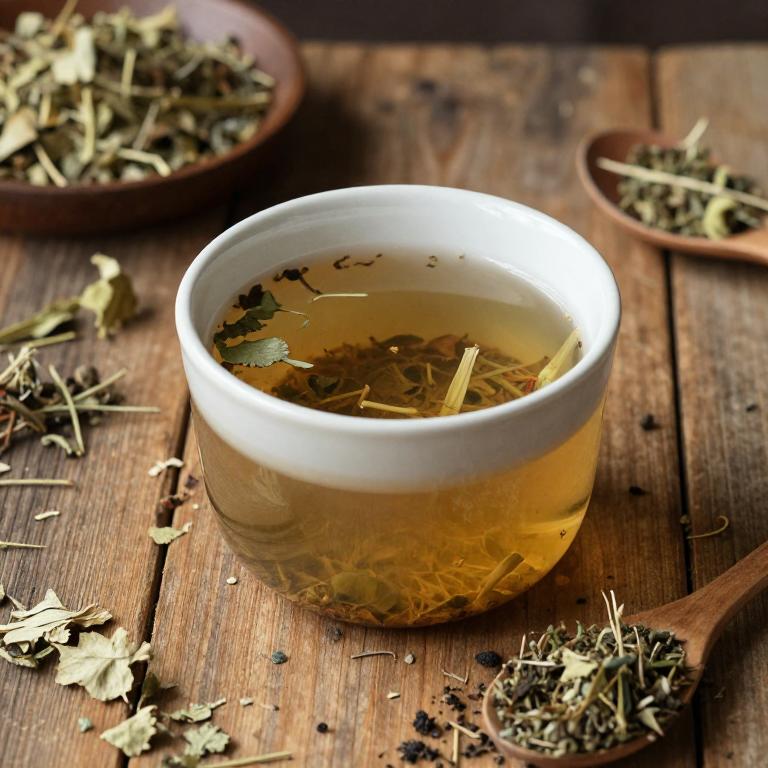
Withania somnifera, commonly known as ashwagandha, is a revered adaptogenic herb used in Ayurvedic medicine for its ability to combat fatigue and enhance overall vitality.
Herbal decoctions made from its roots are traditionally prepared by simmering the dried root in water, allowing the active compounds, such as withanolides, to be extracted. These decoctions are believed to support energy levels by reducing stress and improving sleep quality, which are essential for combating fatigue. Studies suggest that ashwagandha may increase stamina and reduce feelings of tiredness by regulating the body's stress response and promoting hormonal balance.
As a natural remedy, ashwagandha decoctions offer a holistic approach to managing fatigue, making them a popular choice in both traditional and modern wellness practices.
3. Golden root (Rhodiola rosea)
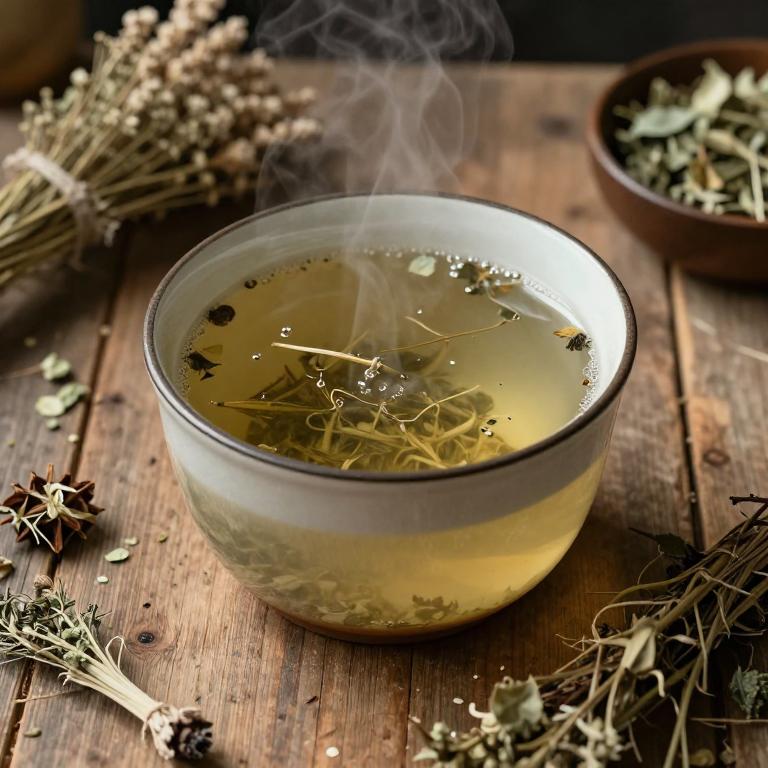
Rhodiola rosea, also known as the "golden root," is a adaptogenic herb that has been traditionally used to combat fatigue and enhance physical and mental performance.
Herbal decoctions made from Rhodiola rosea typically involve simmering the dried roots in water to extract its active compounds, such as rosavins and salidrosides, which are believed to contribute to its energizing effects. These decoctions are often consumed as a tea or taken in capsule form to support energy levels and reduce feelings of exhaustion. Research suggests that Rhodiola rosea may help the body manage stress and improve recovery time, making it a popular choice for those experiencing chronic fatigue.
However, it is important to consult with a healthcare professional before using Rhodiola rosea, especially if you have existing health conditions or are taking other medications.
4. Ginkgo (Ginkgo biloba)
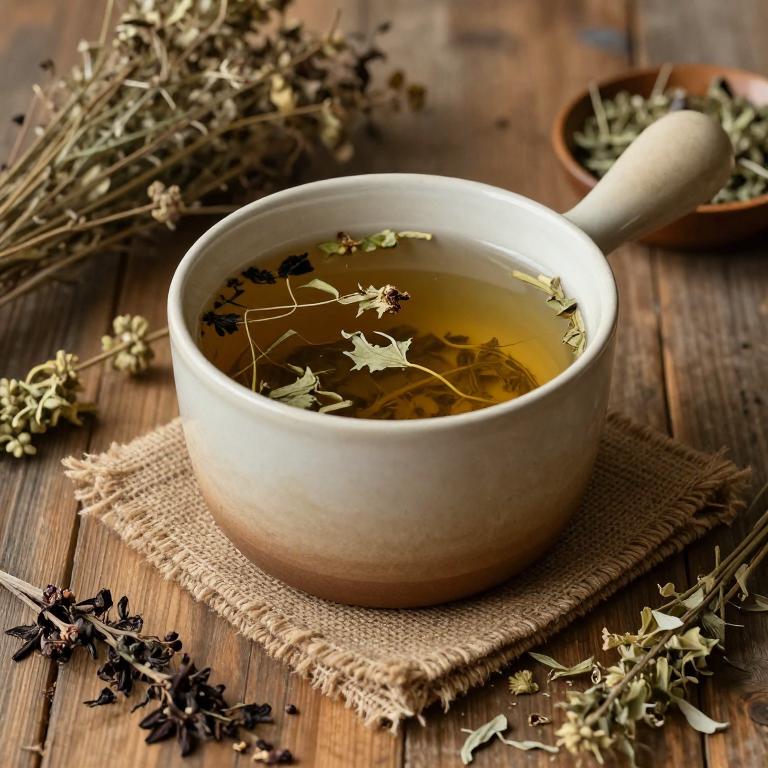
Ginkgo biloba herbal decoctions have been traditionally used to alleviate fatigue by enhancing blood circulation and improving oxygen delivery to tissues.
These decoctions typically involve simmering the leaves of the ginkgo tree in water to extract its bioactive compounds, such as flavonoids and terpene lactones. The increased blood flow and cognitive function associated with ginkgo biloba may help reduce mental and physical exhaustion. While some studies suggest potential benefits, more research is needed to fully understand its efficacy and safety.
As with any herbal remedy, it is advisable to consult a healthcare professional before use, especially for individuals with existing health conditions or those taking other medications.
5. Chaste tree (Vitex agnus-castus)

Vitex agnus-castus, commonly known as chaste tree, has been traditionally used in herbal medicine for its potential to support hormonal balance and alleviate symptoms of fatigue.
Herbal decoctions made from the berries of Vitex agnus-castus are often prepared by simmering the dried fruit in water, creating a soothing and nourishing infusion. These decoctions are believed to help regulate the endocrine system, which may contribute to reducing feelings of exhaustion and improving energy levels. While research on its direct effects on fatigue is limited, some studies suggest that its phytoestrogens and other compounds may support adrenal and thyroid function.
As a complementary therapy, Vitex agnus-castus decoctions are often recommended for individuals experiencing fatigue linked to hormonal imbalances, though they should be used under the guidance of a qualified herbalist or healthcare provider.
6. Heartworts (Leonurus cardiaca)
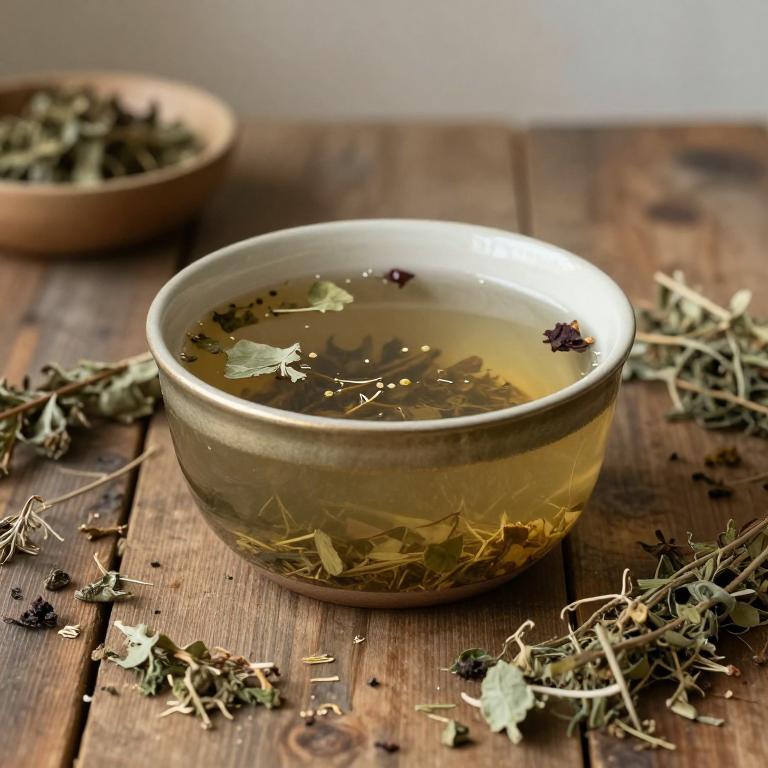
Leonurus cardiaca, commonly known as heartwort, has been traditionally used in herbal medicine for its potential to alleviate fatigue.
The plant contains bioactive compounds such as flavonoids and iridoids, which may contribute to its energizing effects. Herbal decoctions of Leonurus cardiaca are typically prepared by simmering the dried leaves and stems in water for several minutes. These decoctions are often consumed as a tonic to boost vitality and reduce feelings of exhaustion.
While more research is needed, some studies suggest that Leonurus cardiaca may support overall energy levels and enhance physical endurance.
7. Echinacea (Echinacea purpurea)

Echinacea purpurea, commonly known as purple coneflower, is a popular herbal remedy often used to support immune function and reduce fatigue.
Herbal decoctions of Echinacea purpurea are typically prepared by simmering the dried roots, leaves, and flowers in water to extract their active compounds. These decoctions are believed to contain phytochemicals such as alkamides, caffeic acid derivatives, and polysaccharides, which may contribute to their energizing effects. Some studies suggest that Echinacea may help alleviate fatigue by enhancing immune response and reducing inflammation in the body.
However, while anecdotal evidence supports its use for fatigue, more rigorous scientific research is needed to fully understand its efficacy and safety.
8. Red sage (Salvia miltiorrhiza)
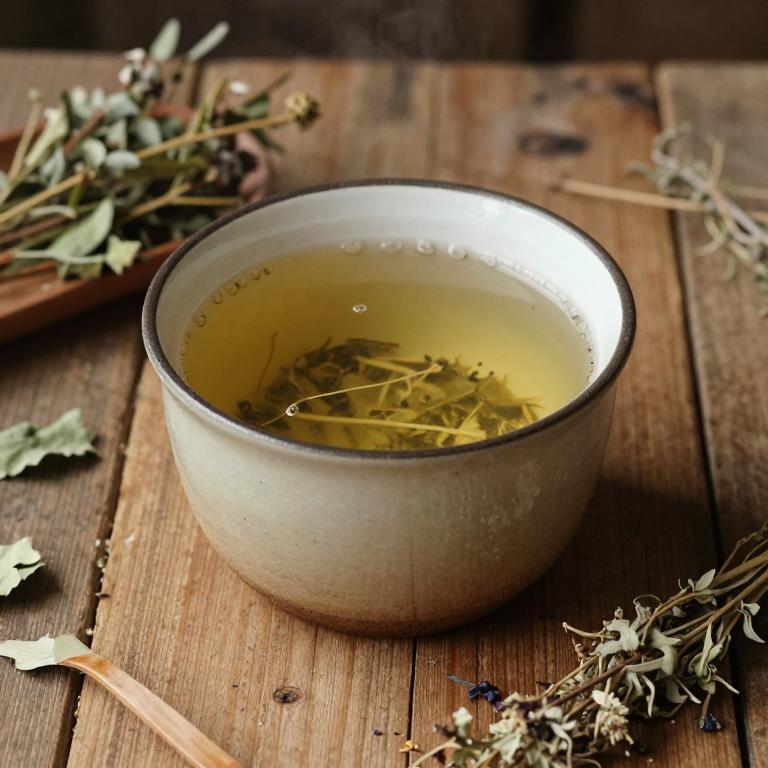
Salvia miltiorrhiza, also known as Chinese red sage, is a traditional herbal remedy commonly used in Chinese medicine for its purported ability to improve circulation and reduce inflammation.
Herbal decoctions made from salvia miltiorrhiza are often prescribed to alleviate symptoms of fatigue by enhancing blood flow and promoting the health of the cardiovascular system. Studies suggest that the active compounds in salvia miltiorrhiza, such as tanshinone and salvianolic acid, may contribute to its energizing effects by supporting mitochondrial function and reducing oxidative stress. While some research indicates potential benefits for fatigue management, more clinical trials are needed to fully establish its efficacy and safety.
As with any herbal treatment, it is advisable to consult a healthcare professional before use, especially for individuals with pre-existing medical conditions or those taking other medications.
9. St. john's wort (Hypericum perforatum)

Hypericum perforatum, commonly known as St. John's Wort, is a herbal remedy traditionally used to alleviate symptoms of fatigue and mild depression.
Its active compounds, including hypericin and hyperforin, are believed to influence neurotransmitter levels in the brain, potentially enhancing mood and energy levels. Herbal decoctions of Hypericum perforatum are often prepared by simmering the dried herb in water, allowing the extraction of its medicinal properties. This method is favored for its simplicity and traditional roots, making it accessible for home use.
While generally considered safe, it is important to consult a healthcare professional before use, as it can interact with certain medications and may not be suitable for everyone.
10. Turmeric (Curcuma longa)

Curcuma longa, commonly known as turmeric, has been traditionally used in herbal medicine for its purported health benefits, including the alleviation of fatigue.
The active compound in turmeric, curcumin, is believed to possess anti-inflammatory and antioxidant properties that may help reduce physical and mental exhaustion. Herbal decoctions made from turmeric roots are often prepared by simmering the dried rhizomes in water, allowing the extraction of beneficial compounds. These decoctions are traditionally consumed as a tea or added to meals to support energy levels and overall vitality.
While preliminary research suggests potential benefits, more clinical studies are needed to fully understand its efficacy in treating fatigue.